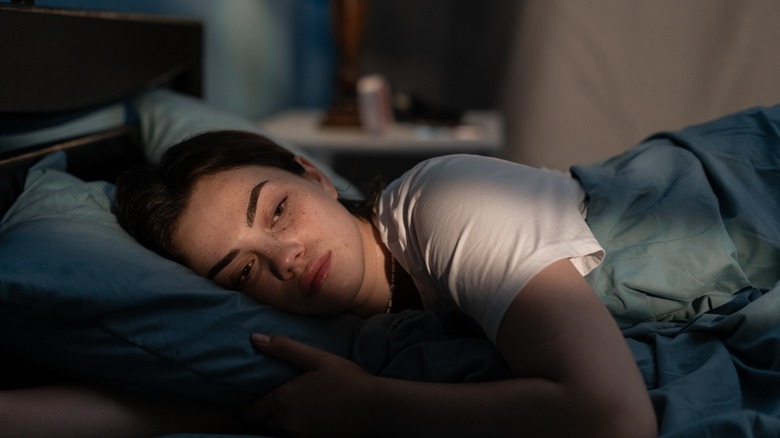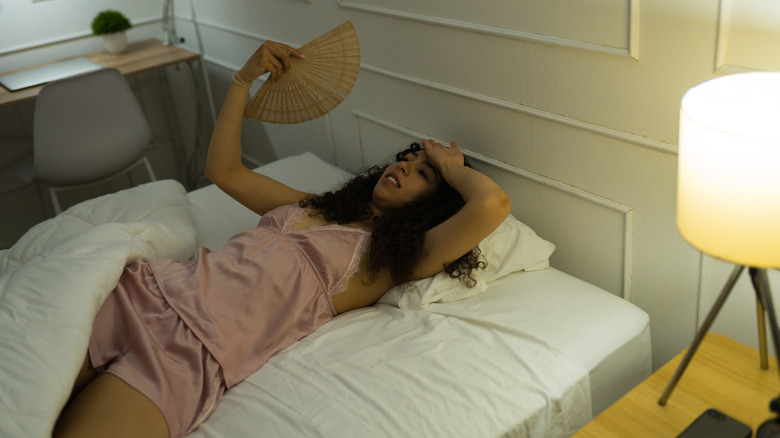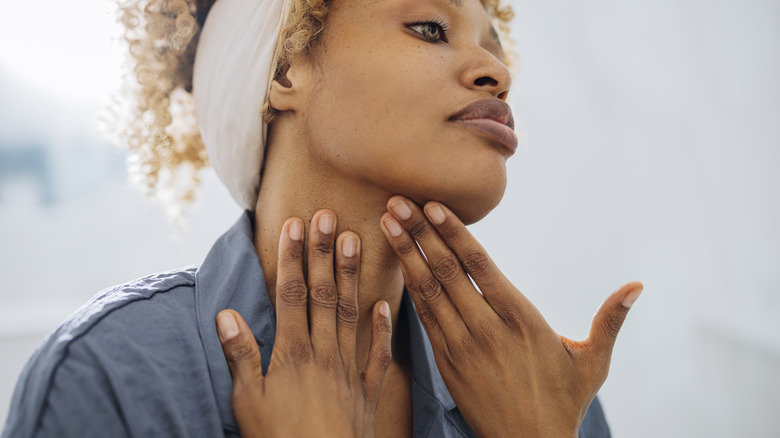You'll Age Faster If You Sleep Like This
All of us have probably experienced some version of this: You wake up in the morning and stumble into the bathroom. The mirror above the sink grabs your attention and you spend a few minutes inspecting your face in it. Are those new wrinkles you see? What about those under-eye bags and circles? Is there any way you can wake up looking less tired?
We are all aging, whether we like it or not, but some things can accelerate the process — like too much time in the sun, smoking, consuming alcohol excessively, stress, and a poor diet. Sleep is another major factor in the equation, particularly some sleep habits that are making you look older.
Did you know the temperature in your room could have an effect as well? More particularly, if you sleep in a room that's too warm, you're unconsciously setting off a chain of events that could be aging you faster. We're talking about hampering with the release of certain hormones and reaping the repercussions of disturbed sleep. Let's take a closer look at this bad sleeping habit that's aging you.
How does sleeping in a warm room age you?
While it's important to note that not everyone prefers the same room temperature when they go to sleep, snoozing in a comfortably cool, dark, and quiet environment is thought to be the best for optimal sleep, per sleep experts. In the words of sleep psychologist, Dr. Michelle Drerup (via Cleveland Clinic), your room should resemble a "cave" with a temperature between 60 and 67 degrees Fahrenheit.
Exposure to heat while sleeping increases your chances of waking up, and also impacts slow wave sleep and rapid eye movement sleep, per a 2012 study published in the Journal of Physiological Anthropology. Slow-wave sleep is important for information consolidation and memory storage in your brain. In fact, disruption in slow-wave sleep is thought to be one of the reasons for memory loss in older adults. Your immune system benefits during this stage of sleep too, and so do the growth and regeneration of tissues, two factors that play a role in preventing premature aging.
"Sleep is a regenerative process where we heal and where our neurons build strong connections. It's like a fountain of youth that we dive in to every night," explained osteopathic doctor, Dr. Mikhail Varshavski (via NBC News). Poor sleep has been linked to activating biological aging and a number of diseases such as diabetes, cardiovascular disease, obesity, depression, multiple sclerosis, and cancer. According to a 2016 study published in Brain, Behavior, and Immunity, just one night of insufficient sleep can cause an older adult's cells to age faster.
The connection between a warm room, hormones, and aging
Melatonin, often referred to as the sleep hormone, is released in response to your body temperature cooling down and the dark. In addition to impacting your circadian rhythm and sleep-wake cycle, melatonin is thought to help protect against neurodegeneration. There is even some science looking at the effects of melatonin as an anti-aging tool. The research is largely focused on this hormone's antioxidant properties that help fight oxidative stress. Additionally, melatonin is linked with the release of the growth hormone, which is thought to maintain muscle tone and youthful-looking skin.
So, it's reasonable to believe that getting a full night's sleep (courtesy of a cool and comfortable room) can help you look younger. You can, at the very least, wake up looking refreshed and reduce the risk of under-eye dark circles and puffiness. Now back to the question of "what is the ideal temperature for sleep?" While infants and older adults might require slightly warmer room temperatures because their bodies aren't able to regulate temperature as efficiently, between 60 and 67°F seems to be the widely accepted answer. Again, this might be different for you. The key is to make sure you're not waking up in the middle of the night because you're too warm.


